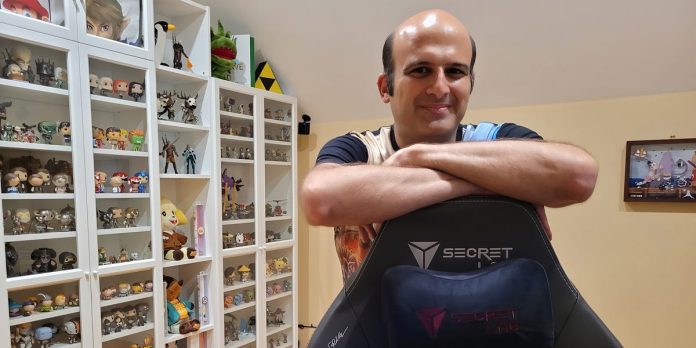- Amir Satvat created a free website with resources for laid-off video-game industry workers.
- The games industry has faced significant layoffs, with an estimated 37,600 jobs lost since 2022.
- Satvat’s successful mid-life pivot to gaming made him confident he could be a de facto career guru.
A few years after Amir Satvat landed his first video-game job at the age of 38, layoffs started piling up across the industry at companies such as Xbox maker Microsoft and publisher Electronic Arts. Seeing many of his new peers let go, he became motivated to lend a hand.
Satvat built a website and filled it with a range of free resources tailored for out-of-work game talent. It includes two still-growing lists — one of job postings and another with contact information for hundreds of people he enlisted to provide support, such as résumé reviews and mock interviews.
“I was like, what if I made the most comprehensive job listing site ever?” Satvat told Business Insider of his thinking when he got started on the initiative in late 2022. “I’m good at modeling, scraping the internet.”
Satvat also created a Discord group for the site’s users to network with each other and he’s given away thousands of tickets to industry events that he acquired by partnering with their organizers. He said he doesn’t charge or make any money off his career site, describing it as a purely philanthropic side hustle.
Based on user feedback, Satvat said his efforts to date appear to have helped around 3,900 ousted game-industry workers find new jobs, a feat that earned him the inaugural Game Changer award at last year’s annual Game Awards show in Los Angeles and this year’s Giving Award from the nonprofit Games for Change in New York.
Those honors come as the game industry has been grappling with an exceptionally high volume of layoffs. An estimated 37,600 jobs have been shed since 2022, according to an online tally of termination announcements and media reports compiled by Farhan Noor, a technical artist in California.
Like employers in many other industries, game companies overhired during the pandemic but other factors have contributed to the cuts, too, such as rising production and marketing costs.
Breaking into the video-game biz
Satvat has been a gamer since he was a kid, and by high school, he knew he wanted to work in the industry despite not having artistic inclinations. “I just liked business stuff,” he said.
But after earning undergraduate and graduate business degrees, he couldn’t find any game jobs near where he lived on the East Coast, and staying close to family was a nonnegotiable. “I come from a very tight knit diaspora of a Persian community,” he said.
Satvat spent several years in business-development roles outside gaming, most recently in a remote one at Amazon’s cloud-computing unit. In 2021, after his first year at Amazon, a colleague introduced him to Ethan Evans, a leader in the company’s gaming division.
Satvat explained that he was a devoted player of franchises like “World of Warcraft” and “The Legend of Zelda,” and the conversation ultimately landed him the kind of job he’d long desired.
“It was transparent how much he knew the [game] community and loved it,” said Evans, who also didn’t start his career in gaming and is now an executive coach. Satvat “wasn’t trying to get a promotion. He was trying to move from one thing to another to get closer to something he wanted to do.”
About a year later, though, Satvat reluctantly resigned from Amazon because the Seattle-based company began mandating in-office attendance, which meant he’d have to relocate.
He said he landed his current job, a remote business-development position at Chinese game giant Tencent. The person who previously had it reached out over LinkedIn to say he’d just left the company and that Satvat should apply for the role. Satvat later learned that this person found him through mutual LinkedIn connections and was aware of his career site.
Now 43, married, and the father of three boys, Satvat works out of his home in Connecticut and continues to spend about 15 to 20 hours every week updating his career site. He also gets help from about 20 volunteers who are aligned with the project’s mission of “empowering gamers at every stage of their career.”
Satvat told BI that it was his successful mid-life pivot to gaming from enterprise software and earlier, healthcare, that made him confident he could become a de facto career guru. When asked for his best advice for job seekers, including those looking to change industries, he pointed to old-fashioned networking.
“Spend all your time meeting people,” Satvat said. “Every single job I’ve gotten has been through a relationship.”
Read next
